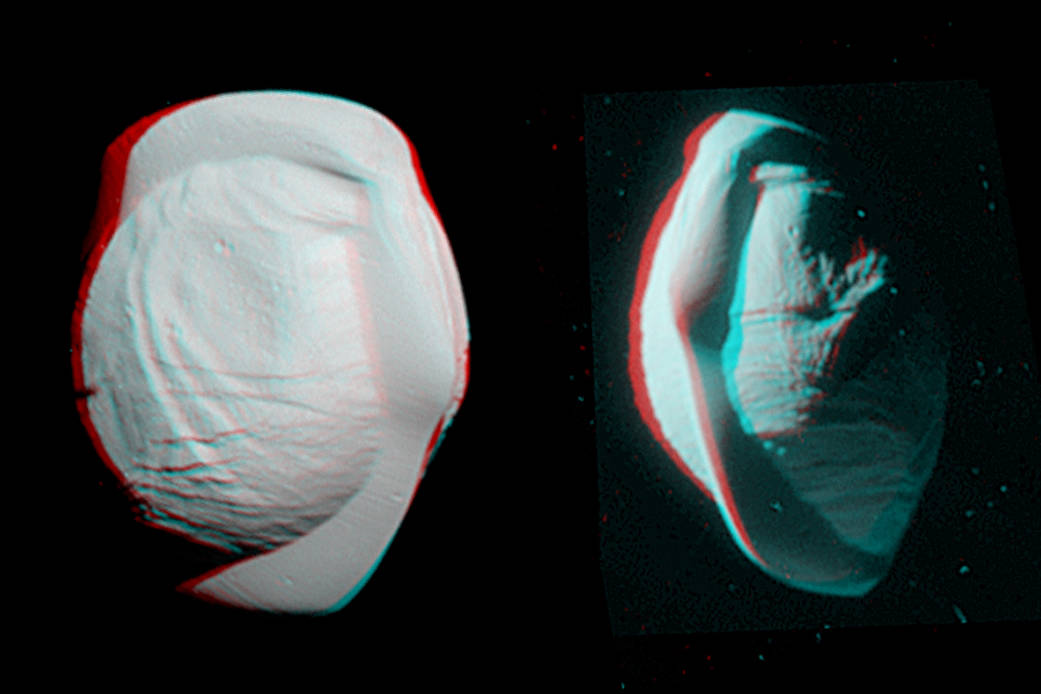These stereo views, or anaglyphs, highlight the unusual, quirky shape of Saturn’s moon Pan. They appear three-dimensional when viewed through red-blue glasses with the red lens on the left.
The views show the northern and southern hemispheres of Pan, at left and right, respectively. They have been rotated to maximize the stereo effect.
Standard (non-stereo) versions of these views are presented in PIA21436.
Pan has an average diameter of 17 miles (28 kilometers). The moon orbits within the Encke Gap in Saturn’s A ring. See PIA09868 and PIA11529 for more distant context views of Pan.
Both of these views look toward Pan’s trailing side, which is the side opposite the moon’s direction of motion as it orbits Saturn.
These views were acquired by the Cassini narrow-angle camera on March 7, 2017, at distances of approximately 16,000 miles or 25,000 kilometers (left view) and 21,000 miles or 34,000 kilometers (right view).
Image scale in the original images is about 500 feet (150 meters) per pixel (left view) and about 650 feet (200 meters) per pixel (right view). The images have been magnified by a factor of two from their original size.
For other 3-D images from the Cassini mission, see http://go.nasa.gov/2mudxQA.
The Cassini-Huygens mission is a cooperative project of NASA, the European Space Agency and the Italian Space Agency. The Jet Propulsion Laboratory, a division of the California Institute of Technology in Pasadena, manages the mission for NASA’s Science Mission Directorate, Washington, D.C. The Cassini orbiter and its two onboard cameras were designed, developed and assembled at JPL. The imaging operations center is based at the Space Science Institute in Boulder, Colo.
For more information about the Cassini-Huygens mission visit http://saturn.jpl.nasa.gov/. The Cassini imaging team homepage is at http://ciclops.org.
Image Credit: NASA/JPL/Space Science Institute




























